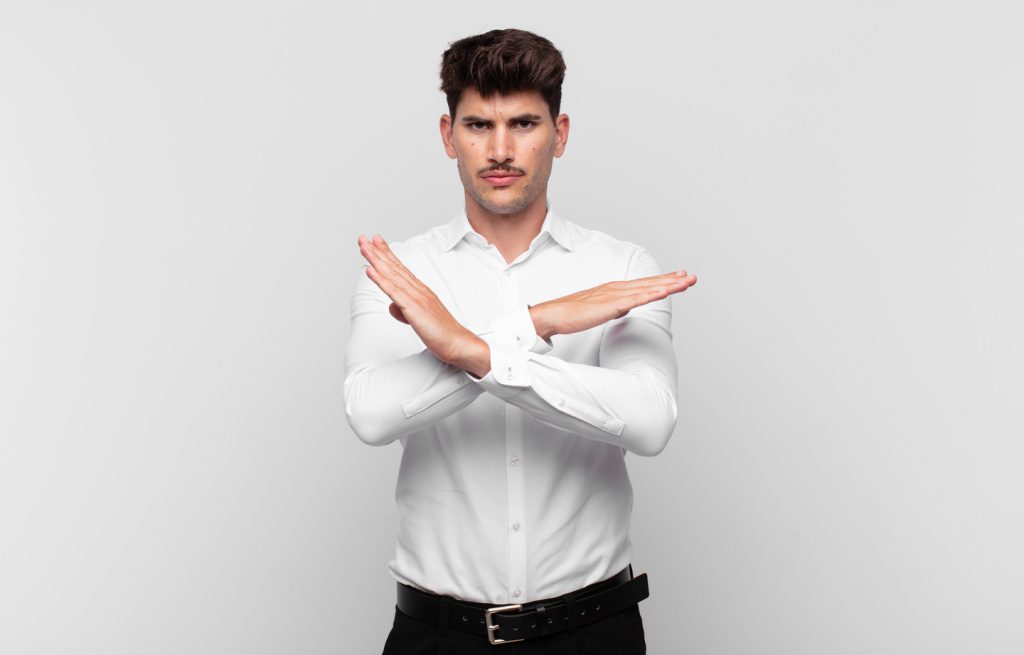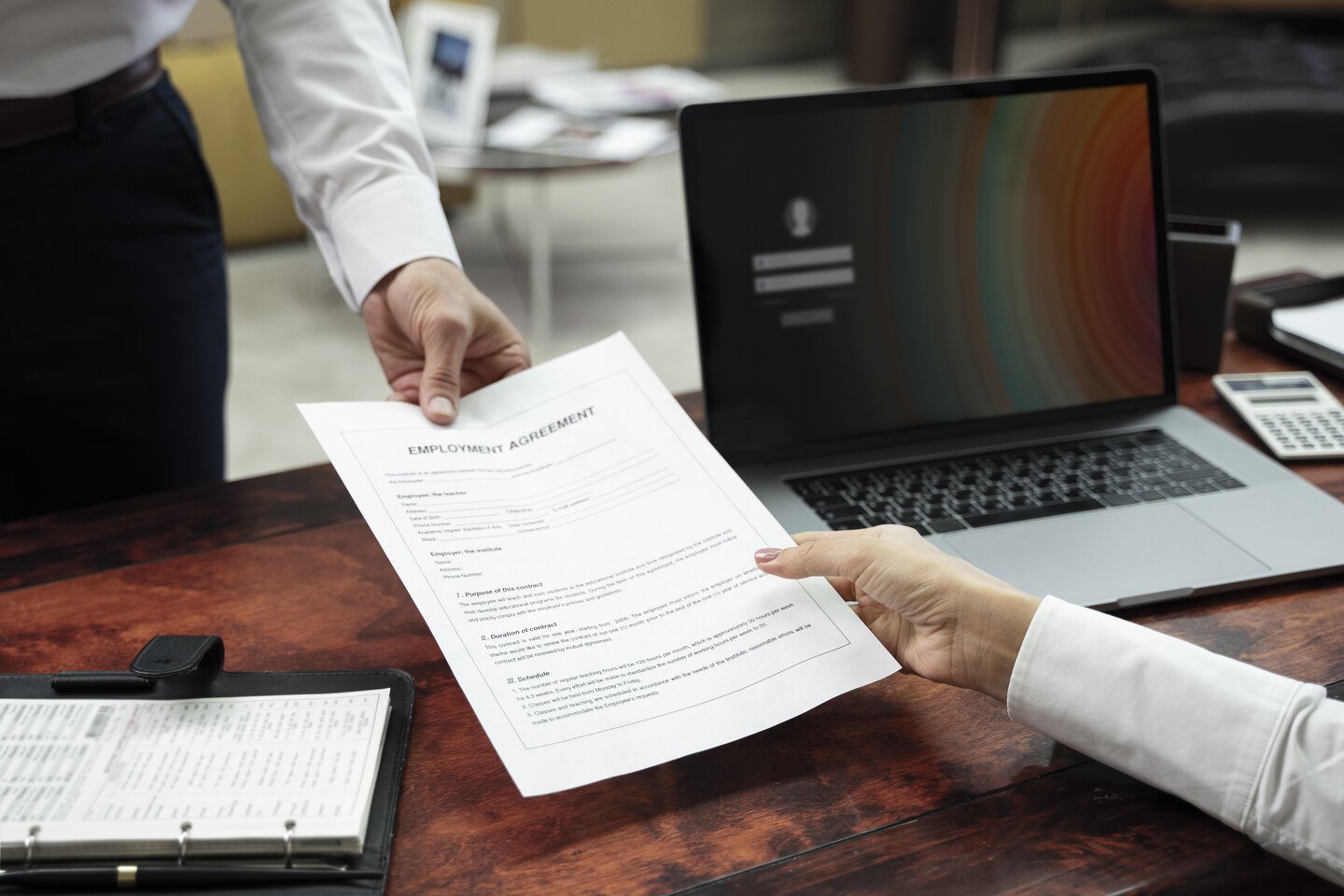Graduating from college marks an exciting chapter in life, full of new possibilities and opportunities. However, one of the most significant and often daunting steps in this journey is landing your first job. The job interview is a crucial hurdle, and acing it requires preparation, confidence, and a clear understanding of what to expect.
Your first job interview is where you have the opportunity to make a great impression on a prospective employer. You need to be prepared and understand the job description and the company’s history, in addition to potential first job interview questions that may be asked. The way you answer questions determines if you move onto the next interview and positions you to receive your first offer in the workforce.
In this article, we will talk about what a first job interview is, how to prepare for it, what first job interview questions you should expect, and tips for your first work interview to be successful during the interview process.
We’ll cover essential interview tips, such as researching the business culture, understanding the job posting, practicing mock interviews, and showcasing your transferable skills and relevant experience.
We’ll also discuss how to make a positive impression through good communication skills, maintaining eye contact, offering a firm handshake, and discussing your day-to-day responsibilities and personal life appropriately.
By the end of this article, you’ll be well-equipped with first job interview tips to help you ace your job search and leave a lasting impression on the hiring manager during in-person interviews.
First Job Interview Process

The interview process can vary from company to company, but it generally follows a common structure. Understanding this structure can help you feel more prepared and less anxious. Here’s a typical flow of a job interview, highlighting key points to keep in mind:
1. Application Review
After you submit your application, the hiring team reviews your resume and cover letter to determine if you meet the basic qualifications. Make sure to tailor your resume to the job and highlight pertinent experience to catch the hiring manager’s eye.
2. Initial Screening

This may involve a phone or video call with a recruiter to verify your qualifications and assess your interest in the position. Be prepared to discuss your career plan and how it aligns with the job. Maintain eye contact and speak clearly to make a good first impression.
3. First Interview
Often conducted by a hiring manager, this interview focuses on your skills, experience, and how well you fit with the culture of the business. Answer common interview questions confidently and provide specific examples from your past experiences.
4. Second Interview
You might meet with other team members or higher-level executives. This interview may delve deeper into your technical abilities and how you handle job-specific tasks. Discuss how you manage tight deadlines and prioritize tasks to showcase your time managing skills.
5. Assessment Tasks
Some companies may require you to complete a test or project to demonstrate your skills. This is an opportunity to show your potential employer how you handle real-world scenarios.
6. Final Interview
This is usually the last step, where the hiring decision-makers meet with you to ensure you are the right fit for the role. This interview often focuses on cultural fit and how you will integrate into the work environment. Keep an eye contact and use positive body language to reinforce your suitability.
7. Job Offer
If you pass all the stages, you’ll receive a job offer, which may be contingent on reference checks or background screening. Make sure to follow up with a thank you note to express your appreciation and reinforce your concern in the position.
Understanding the process and preparing for each stage can significantly improve your chances of success. Remember, impressions count, and each interaction with a prospect employer brings you closer to your desired career path.
Sample First Interview Questions
To help you prepare for your first job interview, we’ve compiled a list of common questions you might encounter. Each question is followed by a brief description to guide your responses and ensure you leave a positive impression on the interviewer.
Tell me about yourself.
This question allows you to introduce yourself and highlight relevant experiences, skills, and qualifications. Focus on your professional background and personal attributes that align with the job. Mention key points such as your education, any previous experience, and what has led you to pursue this profession.
Why do you want to work for our company?
The interviewer is assessing your curiosity in their organization. Mention specific aspects of the business (such as its mission, company culture, or reputation) that appeal to you. Discuss to the interviewer how the company’s values resonate with your own and how you see yourself fitting into their work environment.
What are your greatest strengths and weaknesses?

Discuss your strengths, such as communication skills, problem-solving abilities, or time control. Provide an example to back up your claims. For weaknesses, choose something minor and explain how you’re working to improve it. This shows self-awareness and a commitment to personal growth.
Can you describe a challenging situation you faced at school or work and how you dealt with it?
Share a specific example of overcoming adversity. Highlight your problem-solving skills, resilience, and positive outcomes. Describe the situation, the actions you took, and the results you achieved, emphasizing your ability to handle stress and pressure.
Where do you see yourself in five years?
Show ambition and alignment with the company’s goals. Discuss how you plan to grow professionally and contribute to the organization. Mention how the position you’re applying for fits into your long-term career path.
What do you know about our company?
Research the company thoroughly. Discuss its products, services, industry position, recent achievements, and any unique aspects that stand out. Demonstrating knowledge about the company shows your genuine awareness and helps you tailor your answers to align with their values and goals.
How do you handle stress and pressure?
Describe your coping mechanisms, time management skills, and ability to be calm under pressure. Provide an example if possible, such as a time when you successfully met deadlines or managed multiple tasks simultaneously.
Describe a time when you worked as part of a team.
Share a positive team experience, emphasizing collaboration, communication, and achieving a common goal. Discuss the role you played, how you contributed to the team’s success, and what you learned from the experience.
Preparing for these questions and practicing your responses will help you feel more confident and articulate while interviewing. Remember to maintain eye contact, use positive body language, and follow up with a thank you note to leave a lasting impression on your potential employer.
Tips for your first job interview

You only get one opportunity to make a strong first impression in a job interview. Common mistakes that can ruin your initial meeting with a potential employer include texting while interviewing, lying on your resume, dressing inappropriately, and coming across as arrogant.
To avoid these pitfalls and reduce anxiety, a bit of preparation can go a long way. Here are six tips to help you get ready before the interviewing.
Research the Company and Job Description
Understand the company culture, mission, values, products, services, and recent news. This shows your genuine interest and enthusiasm. Thorough research will also help you tailor your each answer to align with the company’s goals and values. In addition to learning about the company, it’s essential to understand the specifics of the job role.
Practice Common Questions
Rehearse every answer to common interview questions. Practice with a friend or a family member in front of a mirror to build confidence. This can help you calm and articulate during the interview. Focus on providing clear, concise, and a relevant example from your experience.
Dress Appropriately

Choose professional attire that aligns with the company’s culture. When in doubt, it’s better to be slightly overdressed than underdressed. Your appearance should convey professionalism and respect for the position you’re applying for.
Bring Necessary Documents
Have multiple copies of your resume, a list of references, and any other required documents. Being prepared with these materials shows your attention to detail and organization skills.
Arrive Early
Plan to arrive at least 10-15 minutes before your scheduled interview time. This demonstrates punctuality and gives you a buffer for unexpected delays. Arriving early also allows you to compose yourself and be calm before the interview begins.
Show Enthusiasm
Be positive and energetic. Employers want to see that you are excited about the opportunity. Enthusiasm can help build rapport with the interviewer and make the conversation more engaging.
Ask Questions
Prepare thoughtful questions about the role and the company. This shows you are engaged and have done your homework. Asking about the company’s culture, career growth opportunities, and day-to-day responsibilities demonstrates your genuine interest in the position and your career path.
Follow Up
Send a thank-you email after the interview, expressing your appreciation for the opportunity and reiterating your interest in the position. This small gesture can leave a lasting impression and reinforce your enthusiasm for the role.
Stay Calm and Maintain Good Posture
Interviews can be nerve-wracking, but it’s important to be calm. Take deep breaths and maintain good posture. This will help you appear confident and composed, making a positive impression on the interviewer.
Highlight Your Skills and Experience
When answering questions, focus on your skills and relevant experience. Use an example to illustrate your points. For instance, if asked about handling stress, describe how you manage strict deadlines and stay productive.
Be Honest About Your Greatest Weakness
When asked about your greatest weakness, choose something minor and explain how you’re working to improve it. This shows self-awareness and a commitment to personal growth.
Build Rapport

Try to build a connection with the interviewer. Engage in small talk if appropriate and find common ground. This can make the interview feel more like a conversation and less like a formal interrogation.
Prepare for the Unexpected
Be ready for unexpected questions or scenarios. Practice answering queeries that require you to think on your feet. This will help you stay calm and composed during the interview.
Discuss Your Career Goals
When asked about your future, discuss where you see yourself in five years and how this position fits into your career plan. Show that you are goal-oriented and see the role as a step towards your long-term objectives.
Utilize Your Spare Time Wisely
If there is a delay before the interview or between different positions, use this time to review your notes or practice answers. Staying focused can help keep your nerves in check and ensure you’re fully prepared.
By following these tips, you can make a great first impression and increase your chances of success in your job interviews. Remember, preparation is key, and being well-prepared will help you feel more confident and capable during the interview.
What Not to Do in Your First Hiring Interview

It’s easy to make mistakes in an interview, but recognizing potential problem areas can help you avoid them. Landing an interview for a job is an exhilarating way to gain experience and a crucial, positive step in your job search process.
To prepare effectively for your next interview, it’s essential to understand both the dos and don’ts. Equally important as knowing what to do is being aware of what to avoid during your first job interview.
- Don’t Arrive Late – Punctuality is crucial in making a positive first impression. Arriving late suggests a lack of respect for the interviewer’s time and poor time management skills. Plan your route in advance, account for possible delays, and aim to arrive at least 10-15 minutes early. This extra time will allow you to settle in and collect your thoughts before the interview begins.
- Don’t Speak Negatively – Avoid speaking poorly about previous employers, colleagues, or experiences. Negative comments reflect poorly on your professionalism and can make you seem like a difficult person to work with. Instead, focus on what you learned from past experiences and how they have prepared you for this new opportunity.
- Don’t Be Unprepared – Failing to research the business or practice your answers can make you seem disinterested or unqualified. Take the time to learn about the company’s mission, values, products, and recent news. Prepare an answer to common interview questions and practice them with a friend or in front of a mirror. This preparation shows your enthusiasm for the role and helps you answer questions more confidently.
- Don’t Overlook Body Language – Non-verbal cues are critical in conveying confidence and professionalism. Maintain good posture, make consistent eye contact, and offer a handshake. Smiling and nodding occasionally can also show that you are engaged and attentive. Remember, your body language can speak louder than your words.
- Don’t Interrupt – Listen carefully to the interviewer’s questions and comments. Interrupting can come off as rude or impatient. Allow the interviewer to finish speaking before you respond, and take a moment to formulate your answer if needed. This demonstrates respect and shows that you value their input.
- Don’t Lie – Be honest about your skills, experiences, and qualifications. Dishonesty can be easily detected and can cost you the job. If you lack a particular skill or experience, acknowledge it and express your willingness to learn. Employers appreciate candidates who are truthful and self-aware.
- Don’t Forget to Follow Up – Neglecting to send a thank-you note can be seen as a lack of curiosity or gratitude. After the interview, send a personalized thank-you email to the interviewer, expressing your appreciation for the opportunity and reiterating your enthusiasm for the position. This simple gesture can leave a lasting positive impression and reinforce your attentiveness in the role.
- Don’t Text or Check Your Phone – Using your phone during the interview is a major distraction and shows a lack of respect for the interviewer’s time. Make sure your phone is turned off or on silent mode, and keep it out of sight during the interview. Giving your full attention to the conversation demonstrates professionalism and respect.
- Don’t Dress Inappropriately – Your attire plays a significant role in the impression you make. Dress in professional attire that is appropriate for the company’s culture. If you are unsure about the dress code, it is better to be slightly overdressed than underdressed. Your appearance should convey that you take the interview seriously.
- Don’t Forget Basic Manners – Simple courtesies like saying “please” and “thank you,” holding the door for others, and waiting for an invitation to sit can make a big difference. Good manners reflect well on your character and help build a positive rapport with the interviewer.
- Don’t Ramble – Keep your answers concise and to the point. Rambling can indicate nervousness and can lead you off-topic. Practice structuring your answer in a clear and organized manner. If you feel you are talking too much, pause and ask if the interviewer needs further clarification or if you can move on to the next topic.
- Don’t Forget to Prepare Questions – Coming to the interview without any questions can make you appear uninterested. Prepare a list of thoughtful questions about the role, team, and co. Asking questions shows that you have done your homework and are genuinely interested in the position.
By avoiding these common mistakes, you can present yourself as a professional, capable, and enthusiastic candidate. Remember, preparation and mindfulness go a long way in ensuring you make the best possible impression during your first job interview.
To Conclude

Your first job interview can be a nerve-wracking experience, but with the right preparation and mindset, you can turn it into a rewarding opportunity. By understanding the interview procedure, practicing common questions, and following key tips, you can present yourself as a confident and capable candidate.
Remember, each job interviews is a learning experience that brings you closer to your career goals. Stay positive, stay prepared, and good luck on your journey to acing your first job interview!





